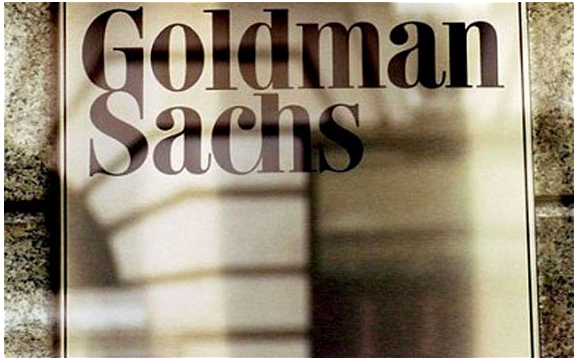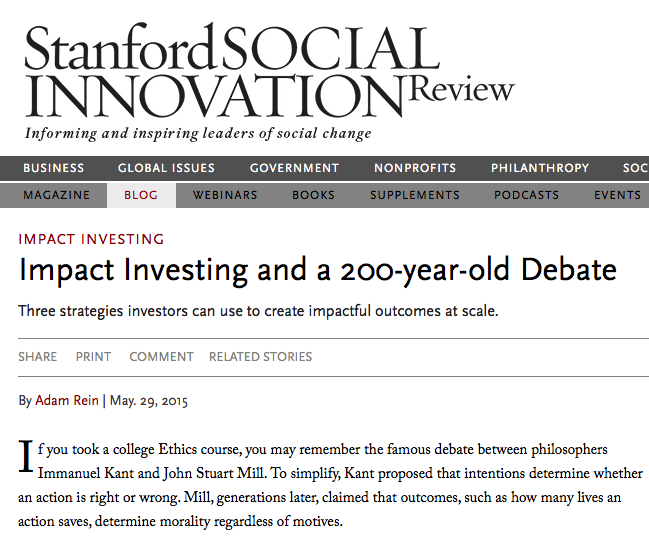
A recent Bloomberg report indicates that companies looking to hire people with a niche-focused advanced degree, such as an MBA in Sustainable Finance, are few and far between. Even investment firms with a focus in the sustainable industry sector are pursuing those with a more general degree from graduate school. Though the idea of sustainable operations is trending in many industries right now, studying it specifically may not be the best idea in today's job market.

Last month Acumen joined forces with global business software leader SAP to offer a two-week leadership development program in Silicon Valley for CEOs from nine Acumen-backed companies. This fellowship included a closed-door session hosted at First Round Capital, a seed-stage venture firm that is a giant in Silicon Valley, having been among the first to invest in the likes of Uber, Taskrabbit and Blue Apron.

Every October, Amy made the trek to San Francisco for SoCap, an international conference on impact investing. The topics were, will this work? Is it possible? What will happen if we do this? We had no track record, yet many committed time and money to test the ideas, and, as always, time did tell. A compelling report from 2013 reveals what we all felt would be true – investing with your mind and heart would yield better returns.

Goldman's decision to buy, rather than build, its impact investing capacity for high-net-worth and institutional clients may prod other wealth-management giants to accelerate their own impact efforts through acquisitions. Some kind of impact investment proposition has become de rigueur for big banks and financial services providers, but a gap has remained between talk and action.

One of the questions we are often asked is whether investors need to sacrifice returns for impact. Even more often, we observe that investors implicitly assume that a trade-off between impact and financial return is required without engaging in the conversation.
Major trends are changing finance as we know it. The world is undergoing structural shifts of money, with the World Economic Forum predicting a $41tn wealth transfer (PDF) from baby boomers to millennials over the next 40 years. It is also trying to adapt to a changing financial market structure.

An international group of more than 110 investors managing more than $5 trillion in assets is concerned about a small substance found in many household goods: palm oil.

If you took a college Ethics course, you may remember the famous debate between philosophers Immanuel Kant and John Stuart Mill. To simplify, Kant proposed that intentions determine whether an action is right or wrong. Mill, generations later, claimed that outcomes, such as how many lives an action saves, determine morality regardless of motives.
101 Montgomery Street
Suite #2150
San Francisco, CA 94104
+1 (415) 534-4444
info@sonencapital.com